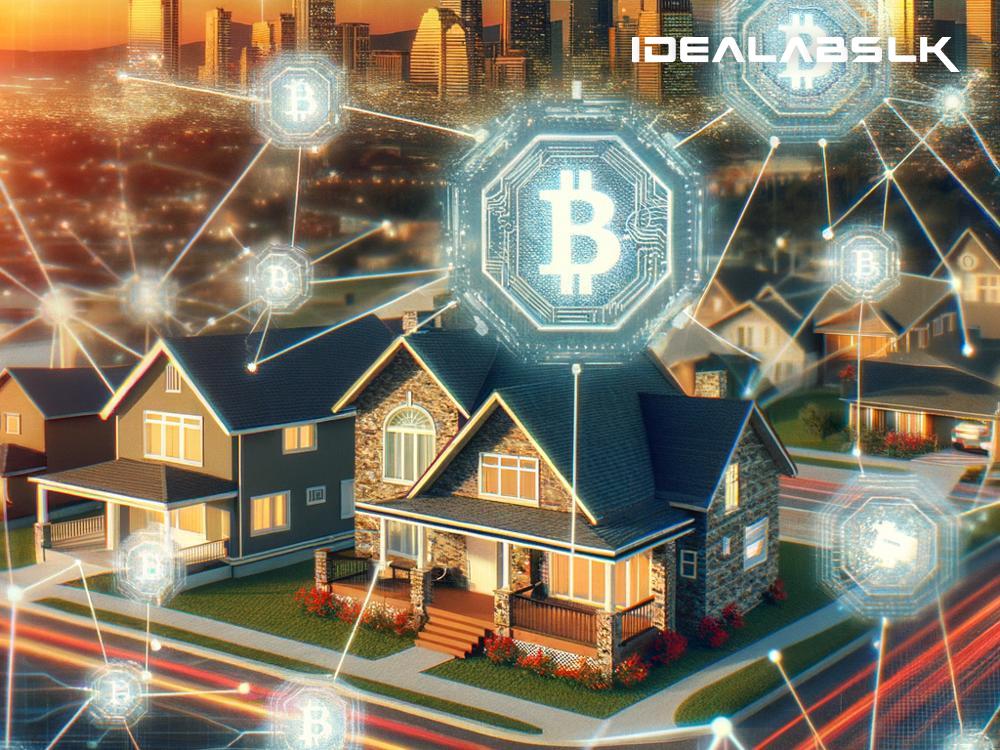Title: Blockchain: A Game Changer for Property Ownership and Transfers
Welcome to the future of buying and selling property, where the traditional, sometimes sluggish process is getting a much-needed makeover thanks to blockchain technology. You’ve likely heard about blockchain in the context of Bitcoin and other cryptocurrencies, but it’s also starting to make waves in the real estate world. Let’s break down how this technology is changing the dynamics of property ownership and transfers, making the process easier, faster, and more secure for everyone involved.
What is Blockchain?
At its core, blockchain is a type of database, but it’s drastically different from the databases we use today. It stores information in blocks which are then chained together in chronological order. It's decentralized, meaning that it's spread across multiple computers, and once a piece of information is added, it's nearly impossible to alter. This makes blockchain an incredibly secure way of storing and sharing data, which is why it's perfect for financial transactions and, you guessed it, real estate transactions.
Simplifying Property Transfers
Traditionally, transferring property ownership involves a lot of paperwork, intermediaries like lawyers and real estate agents, and, unfortunately, a lengthy waiting period. However, blockchain is set to streamline this process significantly.
With blockchain, the entire history of a property, including past transactions and ownership details, is securely stored on the blockchain ledger. This not only simplifies the title search process but also reduces the risk of fraud. No more worrying about forged documents or disputes over who really owns the property. It's all there, clear as day, in the blockchain.
Furthermore, smart contracts - self-executing contracts with the terms of the agreement directly written into lines of code - can automate the transfer process. Upon fulfillment of the contract terms (e.g., payment), the property ownership can automatically transfer to the buyer, reducing the need for middlemen and making the process faster and cheaper.
Increasing Accessibility and Reducing Costs
One of the most exciting benefits of blockchain in real estate is the potential to make property investment more accessible. Through tokenization, which is the process of representing ownership of real estate with digital tokens on the blockchain, investors can purchase shares of a property. This means you don’t have to buy an entire property to invest in real estate, making it more accessible to a broader audience.
Moreover, because blockchain streamlines the transaction process and reduces the need for intermediaries, the associated costs of transferring property ownership, such as fees for legal services, brokers, and banks, can also decrease. This could potentially lead to more competitive market prices, benefiting both buyers and sellers.
Enhancing Security and Trust
The security features of blockchain could be a real game-changer for property transactions. Since each transaction recorded on a blockchain is encrypted and immutable, meaning it cannot be altered or deleted, the risk of fraud is significantly reduced. This creates a level of transparency and trust that is often lacking in traditional real estate deals.
Imagine knowing the exact history of a property, including every transaction and any disputes or issues, all verified and secure on the blockchain. It would make the process of buying or selling a property much less stressful and more transparent, encouraging more people to get involved in real estate.
Challenges and the Road Ahead
While the potential for blockchain to revolutionize the real estate market is immense, there are hurdles to overcome. Legal frameworks and regulations will need to adapt to accommodate the unique aspects of blockchain transactions. Additionally, widespread adoption depends on building robust and user-friendly platforms that can interface with existing real estate markets.
As we look to the future, the question isn't if blockchain will transform the real estate industry, but when. Early adopters are already showcasing the benefits, from smoother, faster transactions to increased accessibility and security. As technology advances and more people become comfortable with the idea of digital transactions and smart contracts, we could see a world where buying a house is as simple as clicking a button, thanks to blockchain.
The journey of blockchain in transforming property ownership and transfers is just beginning, but it's clear that it has the potential to make significant waves. By making transactions more straightforward, secure, and accessible, blockchain isn't just changing the game; it's setting the stage for a whole new way of thinking about real estate.

